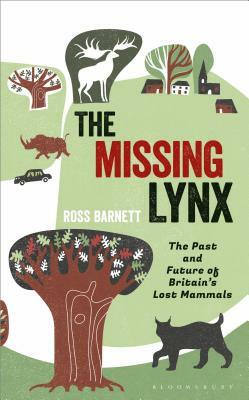
The Missing Lynx: The Past and Future of Britain's Lost Mammals
by Ross Barnett
Genres: Non-fiction, SciencePages: 352
Rating:

Synopsis:In The Missing Lynx, Ross Barnett uses case studies, new fossil discoveries, biomolecular evidence and more to paint pictures of these extinct species, and to explore the significance of the lynx's disappearance in ecological terms. He also discusses how the Britons that these animals shared their home with might have viewed them, and why some survived while others vanished.
Barnett also looks in detail and the realistic potential of reintroductions and even of resurrection--topics that capture public interest today. With Beaver now wild again in various parts of Britain and even Great Bustard on Salisbury Plain, what about the return of sabretooths, mammoths, and the aurochs to modern ecosystems? Will we ever be able to bring these animals back? And should we?
At a time where rewilding is moving from pie-in-the-sky to actual reality, this timely and important book looks from a scientific perspective at the magnificent megafauna we've lost, why we lost it and what happened as a result, and how we might realistically turn the ecological tide.
Once upon a time, megafauna were common all over the world, but after a certain point in time, they began to disappear. Mammoths. Mastodons. Cave lions. Cave bears. Aurochs. Irish elk. And what was the common factor? Well, as Ross Barnett says in The Missing Lynx, probably us. Probably humans.
The Missing Lynx digs into the lives of a few of these different creatures, trying to understand where they came from and where they went, focusing mostly on the lives of animals once found in the British Isles which are extinct now (in some cases worldwide, in others just in the UK). In some ways it’s a sad story — think of all we’ve lost. But Barnett is enthusiastic, fascinated, and that made the book pretty compulsive reading.
I did find it weird that beavers apparently count as megafauna: I always think way bigger, somehow! But apparently beavers count, and they are indeed pretty cool.
It’s easy to get pessimistic when you read books like this, showing how humans were a major driver in extinctions. Somehow Barnett’s enthusiasm wins out over that, with some optimism that if we can learn to look at ourselves, we can begin to fix this through reintroductions, rewilding, and perhaps (though he’s sceptical of this and rightly so) resurrection.
Rating: 4/5
